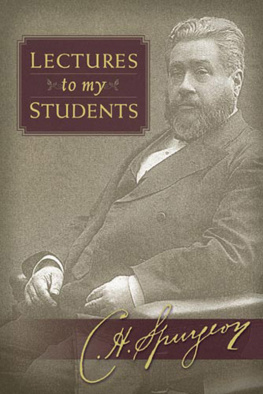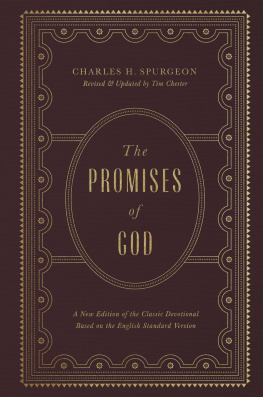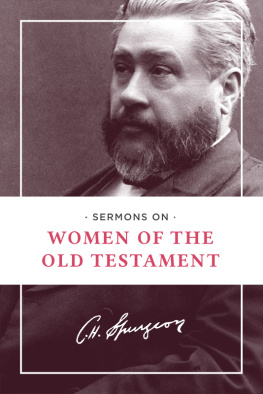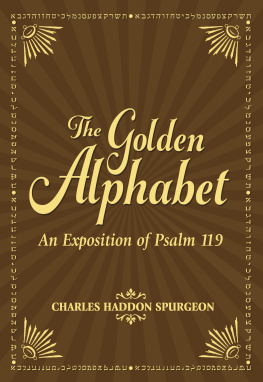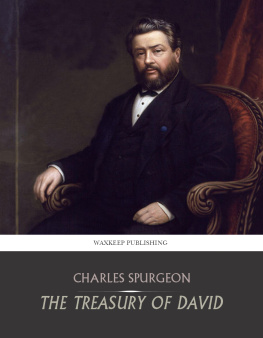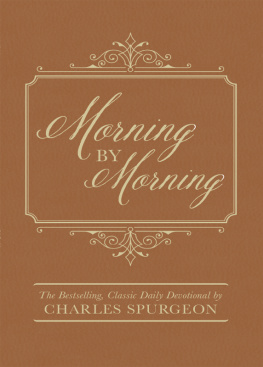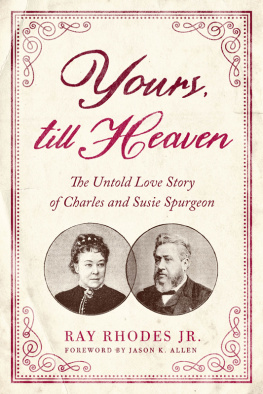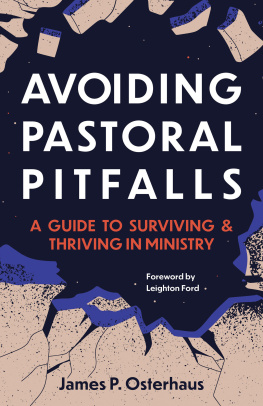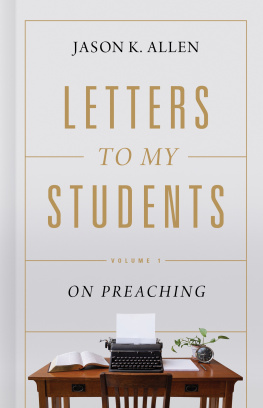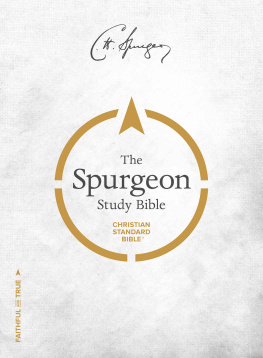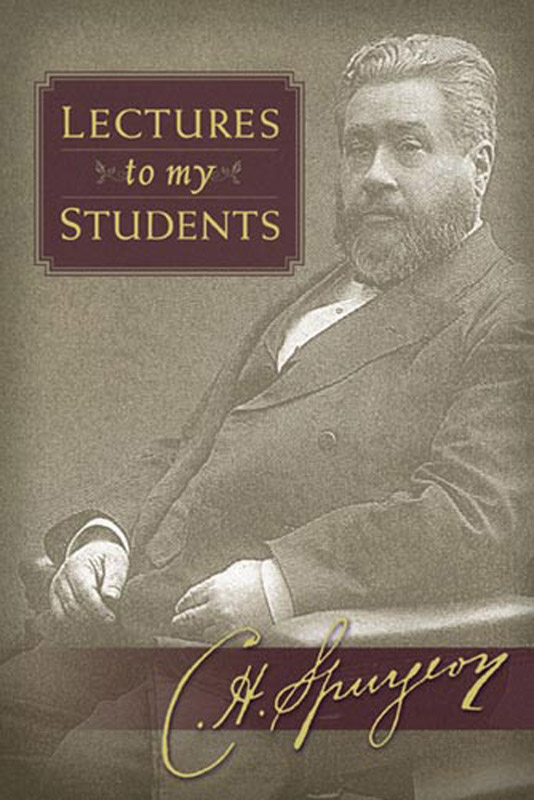All rights reserved. No part of this book may be reproduced or transmitted in any form or by any means, electronic or mechanical, including photocopying, recording, or by any information storage and retrieval system, without permission in writing from the publisher.
Due to technical issues, this eBook may not contain all of the images or diagrams in the original print edition of the work. In addition, adapting the print edition to the eBook format may require some other layout and feature changes to be made.
These lectures by Charles H. Spurgeon have been gently edited and updated for the modern reader.
The Pastors College
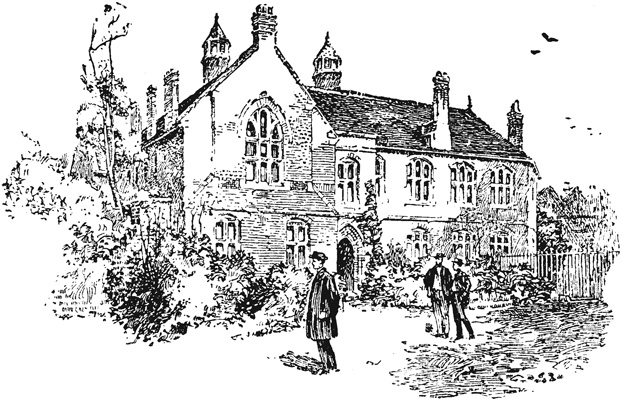
The Pastors College was commenced upon a very small scale in the year 1856. Since that date it has educated and sent forth into the ministry not less than three hundred and fifty men, of whom, after deductions by death and other causes, about three hundred remain in the Baptist denomination, preaching the gospel of Jesus Christ. In addition to this, a far larger number of men receive gratuitous education in the evening, such as may fit them to be city missionaries, colporteurs, or useful private Christians.
The institution receives no man in order to make him a preacher, but it is established to help in the further education of brethren who have been preaching with some measure of success for two years at the least. Many men of earnest spirit and established Christian character are hindered in their efforts to do good by the slenderness of their knowledge. Conscious of their own defects, they endeavor to improve themselves, but the absence of a guide, their need of books, and their scanty time, all prevent their making progress. These are the men whom the Pastors College welcomes.
Men in whom piety, zeal, and the indwelling Spirit are to be found need not fear refusal at our doors on account of poverty, if they possess those gifts of utterance which are essential to the preacher.
The College aims at training preachers rather than scholars. To develop the faculty of ready speech, to help them to understand the Word of God, and to foster the spirit of consecration, courage, and confidence in God, are objects so important that we put all other matters into a secondary position. If a student should learn a thousand things, and yet fail to preach the gospel acceptably, his college course will have missed its true design.
Should the pursuit of literary prizes and the ambition for classical honors so occupy his mind as to divert his attention from his lifework, they are perilous rather than beneficial. To be wise to win souls is the wisdom ministers should possess.
In the Pastors College definite doctrines are held and taught. We hold by the doctrines of grace and the old orthodox faith, and have no sympathy with the countless theological novelties of the present day, which are novelties only in outward form: in substance they are repetitions of errors exploded long ago. Our standing in doctrinal matters is well known, and we make no profession of latitudinarian charity, yet we find no failure in the number of earnest spirits who rally to our standard, believing that in truth alone can true freedom be found.
The support of the College is derived from the free-will offerings of the Lords people. We have no roll of subscribers, although many friends send us aid at regular intervals. Our confidence is that God will supply all our needs, and he has always done so hitherto. The president has never derived a farthing from the work for himself in any shape, but on the contrary delights to give to the work all that he can, both of money and gratis service; and therefore he the more confidently appeals to others to assist him in maintaining the institution. No work can possibly confer a greater benefit upon mankind than the training of ministers whom God has chosen, for around them spring up churches, schools, and all the agencies of religion and philanthropy. As we are commanded to pray for laborers in the Lords harvest, so are we bound to prove the honesty of our prayers by our actions.
At least 100 is required every week to carry on the work.
C. H. Spurgeon, Nightingale Lane, Clapham, Surrey.
Volume One
Lectures to My Students
A Selection from
Addresses Delivered to the Students
of
Metropolitan Tabernacle
by
C. H. Spurgeon
President
To the Students of the Words, Works, and Ways of God
Introduction and Apology
In reply to many requests from those ministers who in their student days listened to my lectures, I submit a selection to the press. This, however, I cannot do without an apology, for these addresses were not originally prepared for the public eye, and are scarcely presentable for criticism.
My college lectures are colloquial, familiar, full of anecdote, and often humorous; they are purposely made so, to suit the occasion. At the end of the week I meet the students, and find them weary with sterner studies, and I judge it best to be as lively and interesting in my prelections as I well can be. They have had their fill of classics, mathematics, and divinity, and are only in a condition to receive something which will attract and secure their attention, and fire their hearts. Our reverend tutor, Mr. Rogers, compares my Friday work to the sharpening of the pin: the fashioning of the head, the straightening, the laying on of the metal and the polishing have been done during the week, and then the process concludes with an effort to give point and sharpness. To succeed in this the lecturer must not be dull himself, nor demand any great effort from his audience.
I am as much at home with my young brethren as in the bosom of my family, and therefore speak without restraint. Generous minds will take this into account in reading these lectures, and I shall hope that all who favor me with their criticisms will be of that noble order.
Possibly caustic remarks may be made upon my frequent references to myself, my own methods of procedure, and personal reminiscences. These also were intentional. I have purposely given an almost autobiographical tinge to the whole, because my own experience, such as it is, is the most original contribution which I can offer, and, with my own students, quite as weighty as any other within my reach. It would have been impossible for me to quote the experiences of other men if they had not been bold enough to record them, and I make an honest attempt to acknowledge my debt to my greater predecessors by writing down my own. Whether this arises from egotism or not, each reader shall decide according to the sweetness or acidity of his own disposition. A father is excused when he tells his sons his own life story and finds it the readiest way to enforce his maxims; the old soldier is forgiven when he shoulders his crutch, and shows how fields were won; I beg that the license which tolerates these may, on this occasion, be extended to me.
It would have saved me much labor had I reserved these lectures for redelivery to new companies of freshmen, and I am conscious of no motive in printing them but that of desiring to keep my counsels alive in the memories of those who heard them years ago, and impressing them upon others who dwell beyond the precincts of our classroom. The age has become intensely practical, and needs a ministry not only orthodox and spiritual, but also natural in utterance, and practically shrewd. Officialism is sick unto death; life is the true heir to success, and is coming to its heritage. Mannerisms, pomposities, and proprieties, once so potent in the religious world, are becoming as obsolete in the reverence of men as those gods of high Olympus for whom in past ages poets tuned their lyres, and sculptors quickened marble into beauty. Truth and life must conquer, and their victory is nearest when they cease to be encumbered with the grave clothes of conventionalism and pretense. It is delicious to put ones foot through the lath and plaster of old affectations, to make room for the granite walls of reality. This has been a main design with me, and may God send success to the effort.

